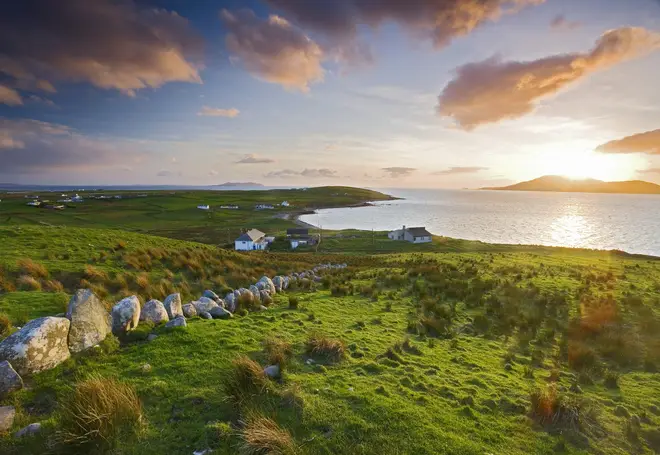Danny Boy: what are the lyrics and history behind the traditional Irish song?
27 July 2023, 12:28 | Updated: 18 September 2023, 16:27

ANÚNA sing Danny Boy in Saint Bartholomew's Church, Dublin
We explore the history and lyrics of ‘Danny Boy’ – a beloved Irish ballad, with an enduring power to move and uplift.
Over a century has gone by since ink was put to parchment, and today ‘Danny Boy’ continues to stir up deep emotion and feelings of Irish national pride.
But while it might feel like the traditional song or even the national anthem of Ireland, the lyrics were written in 1910 by an English lawyer – Frederic Weatherly.
A few years after he put pen to paper, Weatherly’s Irish-born sister-in-law sent him the tune ‘Londonderry Air’. The lawyer, captured by the sweeping melody, tweaked his lyrics and set them to the music.
There are a few theories about the origins of ‘Londonderry Air’, but the most popular one states that in 1851, a woman called Jane Ross heard an unnamed fiddler playing it in Limavady, Ireland.
Ross asked if she could transcribe the music for her friend in Dublin, who was trying to preserve the ancient music of Ireland. The fiddler, whose name has sadly been lost in the annals, agreed.
Read more: What are the lyrics to the Irish national anthem – and why does Ireland have two anthems?

Who has sung ‘Danny Boy’?
‘Danny Boy’ is well known throughout the world and has been recorded by the likes of Bing Crosby, Mario Lanza and Eva Cassidy.
Its emotional strains have also lent the song poignantly to funerals and memorial services.
A retired Irish American police officer, Charlie McKenna, from Rhode Island, once said: “I want ‘Danny Boy’ sung at my funeral mass, and if it isn’t, I’m going to get up and walk out.”
Opera star Renée Fleming sang it at the memorial service for late US Senator John McCain in September 2018 at Washington National Cathedral, in a nod to his Irish ancestry.
Her stirring rendition (watch below) came at the request of the Senator himself.
Read more: Explore Ireland’s best classical music

John McCain funeral: Renee Fleming performs 'Danny Boy'
What does ‘Danny Boy’ mean?
There are varying suggestions as to the true meaning of the Irish ballad.
Some interpret it to be a message from a parent to a son, wishing for their return from war. The highest note, which soars up and ends on the final note of ‘come ye back’, evokes a sense of hope, to the chance of meeting again.
For others, it resonates for members of the Irish diaspora, who were displaced from their own country. It’s a song that deeply cries for home, whether that feeling is tied up in a person or a place.
James Maycock, who directed a film on ‘Danny Boy’ in 2013, said: “I believe that for ‘Danny Boy’ to have had such a huge cultural impact, it has to have tapped into the fundamental stuff – emotions and experiences that affect us all.
“[It’s] certainly about loss, departure, even death. But crucially, it’s also uplifting – offering us that tantalising hope of a possible reunion with the departed,” he told Mojo4Music.com.
Read more: Ireland’s Finest: musicians who have put Ireland on the classical map

Sharon Shannon - Irish jig
What are the lyrics to ‘Danny Boy’?
Oh, Danny Boy, the pipes, the pipes are calling
From glen to glen, and down the mountainside,
The summer’s gone, and all the roses falling,
It’s you, it’s you must go, and I must bide.
But come ye back when summer’s in the meadow,
Or when the valley’s hushed and white with snow,
Tis I’ll be here in sunshine or in shadow,
Oh, Danny Boy, oh Danny Boy, I love you so!
But when ye come, and all the flowers are dying,
If I am dead, as dead I well may be,
Ye’ll come and find the place where I am lying,
And kneel and say an Ave there for me;
And I shall hear, though soft you tread above me,
And all my grave will warmer, sweeter be,
For you will bend and tell me that you love me,
And I shall sleep in peace until you come to me!
And I shall sleep in peace until you come to me!
Come to me!









































